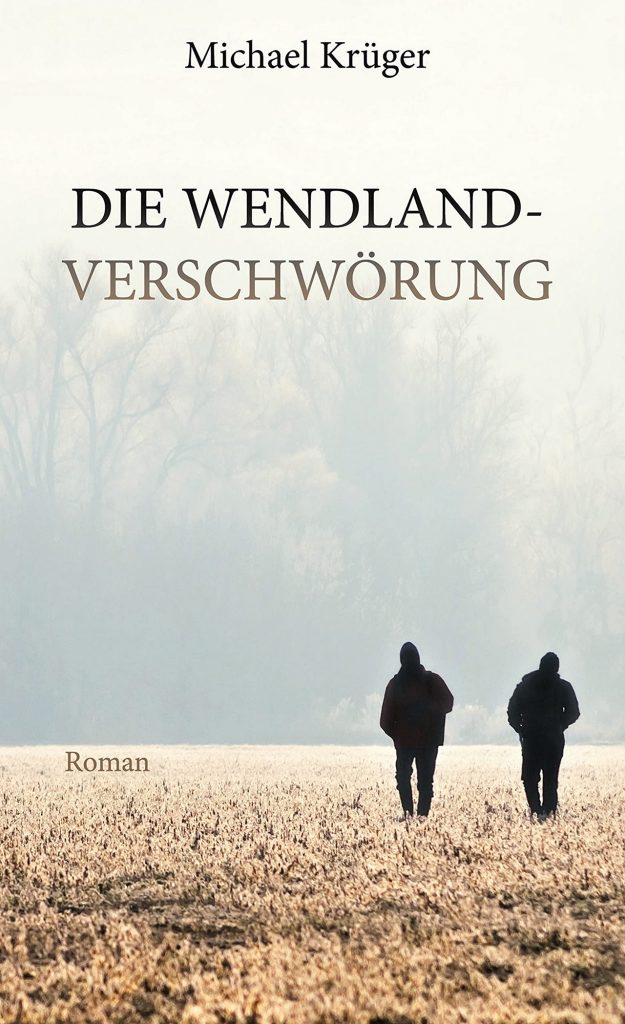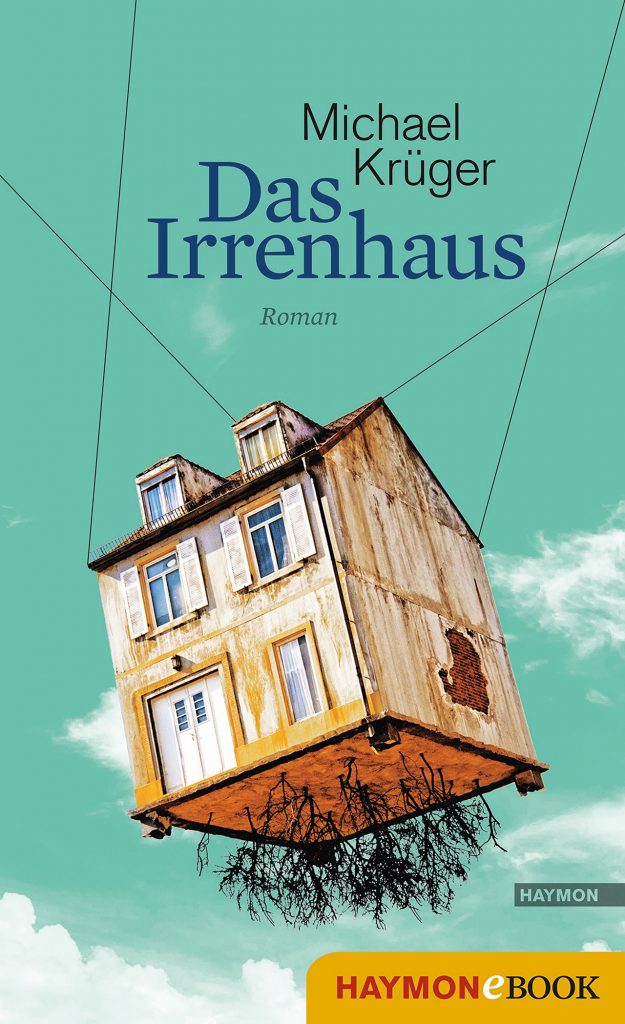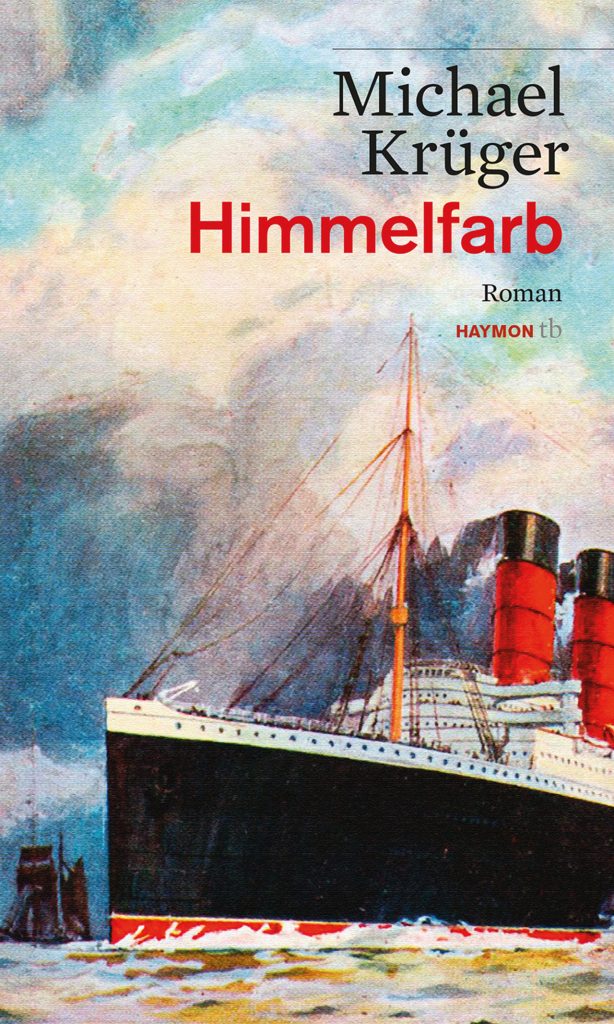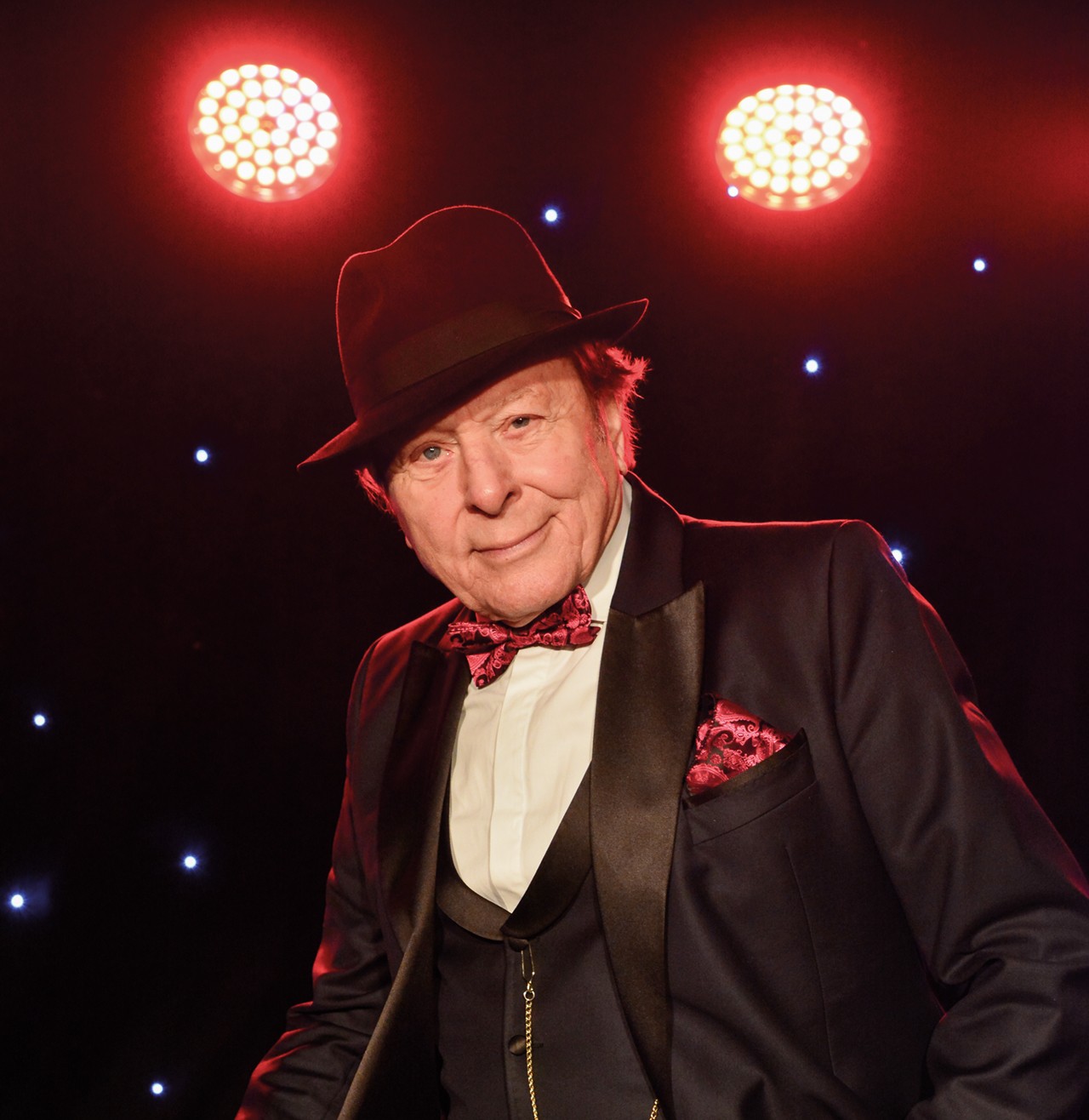Written by: Velimir Cindrić
Photos: Peter Hassiepen
…
What does it mean to be a writer? We could quote Michael Krüger, but that wouldn’t be easy either, because Krüger always has so much to say, and all sorts of different things… Reading what he writes, we discover that these are our own feelings and thoughts, but we need him to reveal them to us in his articles, in his novels, short stories and in his poems, so that we can make them our own and discover that he is the one who draws them out of us and that, by reading him, we have become a little more ourselves.
This is part of the explanation given by the jury of the famous Nonino Literary Prize, which awarded this important prize at the end of January this year. No small feat, considering that the Nonino Prize is considered a precursor to the famous Nobel Prize. Namely, in the new millennium, as many as six Nonino Prize winners have also been crowned Nobel Prize winners.
The Nonino Prize is also special in that its patron is not, as is usual, an academic or philanthropic institution, but the world-famous producer of boutique grappa Nonino, a brand present in more than 70 countries, including Croatia.
Michael Krüger, a poet and novelist, was born in 1943 in Wittgendorf in Saxony-Anhalt, a federal state in eastern Germany. He grew up in Berlin and has long lived in Munich. For many years he was the soul of “Carl Hanser Verlag”, one of the most prestigious German publishing houses, for which he began working in 1968 as a manuscript reader, becoming its literary director in 1986, a position from which he retired after a brilliant career in which he included fourteen Nobel Prize-winning writers in his catalogue, including Joseph Brodsky, Derek Walcott and Tomas Tranströmer.
Krüger was the editor of the magazine “Akzente” and its publishing division “Edition Akzente”. This sophisticated intellectual is a member of several academies, president of the Bavarian Academy of Fine Arts and the author of more than forty books – from poetry, short stories, novels to literary criticism and translations.
His first collection of stories “Was tun – Eine altmodische Geschichte” (What to Do – An Old-Fashioned Story) was published in 1984. For his literary work, Krüger has received many awards, including the Peter-Huchel-Preis (1986), the Médicis Etrangers Prize (1996), the Mörike-Preis (2006), the Joseph-Breitbach-Preis (2010) and the Cesare De Michelis Publishing Prize (2023).
We spoke to Michael Krüger in Udine, Italy, the day before the 2025 Nonino Prize ceremony.



As a writer, editor, publisher and translator, do you consider yourself a person with multiple identities?
First of all, I don’t know what my identity is. I’ve been in the world for over 80 years, and if I had to say what my DNA, my identity, my deepest conviction is, I wouldn’t know the answer.
I grew up in a small village in Saxony. I went to school in Berlin. I learned printing, and as a bookseller I sold books, and then I published, reviewed, read and wrote books. But I don’t know if that makes an identity.
You started with poetry. Why did that form appeal to you the most?
You know, I believe that poetry is the beginning of literature. European poetry began with the psalms. I believe that poetry is the only form of literature that is very concentrated. It doesn’t want to be a life story, but a concentration of life. Since we’re only in the world for a short time, 80, 85, maybe 90 years, you have to think very carefully about which books you don’t really want to read. If you’re 60 and you read regularly, you already know that you’ve read hundreds of books that really didn’t interest you at all. Then you start to be very frugal with your time.
I am now 81 years old and I am already starting to reread some books. Italo Calvino once said that the classics are those books that you always want to reread. I am already thinking about whether I can afford to reread Flaubert, for example. That means I have to set aside a year to reread the works of that writer. But I will never be able to reread Flaubert, Proust, Tolstoy, Dostoevsky, Dickens, Thackeray… I have to think about what I will do with my time.
With poetry it is easier. If I take all the poems that I love, from the Psalms to today, it will take me two years to reread them all. So I hope I will be around for another two years to do that.
How different are poetry and novels?
The novel was invented by modern societies. It is an invention of modern times. That is, the invention of people living together in cities, telling each other their life stories. They need novels… So the novel is an invention of modern urban society, while poetry I am much older. It starts in all cultures with mythology. And in that respect the differences are very large.

And the methods of writing poems and novels are quite different. What is your approach?
You know, I don’t write novels anymore. I’ve kind of lost faith in them, in stories of development. I only write essays and poems. Writing novels doesn’t interest me anymore. If I want to tell stories, I tell them verbally.
It’s interesting that saying something verbally has such a bad reputation. If I were the Minister of Education, of the Pedagogy of a country, I would reduce the lectures to three hours a week. One hour to learn how to tell a story verbally. The second would be a lesson on how to be silent. And the third how not to interpret poems.
Since you retired 11 years ago and had more time to write, how has your life and perspective as a writer changed?
I stopped working for a publisher at the age of 70. But then I was the president of the Academy of Fine Arts for five years. That means I worked in an office every day for the next five years. Now that I’m free, I have a different attitude towards writing. And also towards reading. For example, I can read all night without anyone scolding me. I can read a novel all night, because I don’t have to get up at seven in the morning and go to the office. It’s a completely different perspective. It’s also freedom.
Because you know that writing and reading take time. If you have time, you don’t need anything else. You need paper and a pen, and that’s it. But you need time. Writing novels in particular means being able to sit; 6-7 hours at a time. If you don’t write anything for three hours, then get up and run away, then nothing from the novel…
Do you write regularly, do you write every day?
Yes, I write every day. In the last few months I’ve written a lot of essays for the books I’ve published. For example, in February I published the last essays of Alfred Brendel, the pianist. Together with Volker Schlöndorf, the director, I translated the poems of Colm Tolbin. Then, I am publishing a series of books called “Edition Petrarca”. I am just about to publish essays on the art of Jacques Couttet.
In a Jewish publishing house in Berlin, I published a book of poems by David Rokeach, an Israeli poet who is now forgotten. He has completely disappeared. I thought: at a time when there is so much anti-Semitism in Germany, it is good to remember these early poets who were so famous in my youth. Besides, we were very close friends…
In the last two years I have written many essays. But in the last five years I have also written a large monograph on the Italian painter Giovanni Segantini. For years he has been a painter whom I have greatly respected and loved… And I have also written a thick book on poets in the 20th century. I am currently writing the second volume. So I have never worked as much as I did between 1975 and 1980. I work between 10 and 12 hours a day.

Do you have any rituals when writing?
I do. I have to go for a long walk first before I can sit down at my desk and write. That means, I live in the country and I go for a long walk and only when I get back can I sit down at the typewriter and start working. I can’t, say, like Thomas Mann, get up, drink a coffee, sit down and write. That’s not possible for me.
Under your leadership, “Hanser Verlag” has published a lot of high-quality literature, including quite a few Nobel Prize winners like Orhan Pamuk, Derek Walcott and Tomas Tranströmer. How do you recognize Nobel potential?
In fact, in my life as a publisher, I have published most of the Nobel Prize winners who have been published in Germany. I have published all the poets, Tranströmer, Walcott, Brodsky…, and that before they won the Nobel Prize. And I lost a lot of money in the process, not me personally, but the publisher with the translations of those books. And then the owners of the publishing house came and said to me: “Why are you publishing so many books of poetry, you’re not making money with that.” I said: “Wait and see, one day they will all win the Nobel Prize.”
I remember, for example, wondering what was really going on in China? Why is there no Chinese literature? They invited me to Beijing University and asked me which Chinese writer I was interested in? I said – Mo Yan. Namely, I had already published one of his books. A year and a half later he won the Nobel Prize…
Then, Orhan Pamuk. I met him somewhere in Italy, I think at the summer festival of the publishing house “Einaudi”. He was there and said he was looking for a publisher for his books. I took the Italian translation with me, we read it and decided to publish it. And a year later he won the Nobel…
But it is not only about literature, but also about the Nobel Prize in Economics. For example, the Indian economist Amartya Sen. We published him too, but also many other authors, we discovered them before they became famous.
Of course, it is not only about my intelligence, there is also a lot of luck. Because there are other publishers that are very good or even better than “Hanser,” but they don’t have many Nobel Prize winners. That may be a coincidence, but maybe not.

How would you describe a typical Nobel Prize winner from your personal contact with them?
There is no such thing as a typical Nobel Prize winner. Let me tell you something. When, as a publisher, a writer comes to you and says: “I’ve already written three novels, but I don’t want anything to do with the old publishing house anymore and I want to move to you”, you ask him of course what he has to offer? And he says – I have some essays and collages. Then a normal publisher would say – well, for God’s sake, look for a very small publisher, because no one buys that.
That’s exactly what happened with the Romanian writer Hertha Müller. She came and said: “I have essays and some collages”. I thought it was really nice, come to us, we’re waiting for you. Two years later she won the Nobel Prize.
It’s interesting that no Israeli author has won the Nobel Prize. For years people thought Amos Oz would win it. Or now David Gossman. And I hope they will. I published both authors many years ago. Even if they don’t win the prize, they remain my favorite authors.
In Italy, Calvino never won the Nobel Prize. Allen Ginsberg never won it. Primo Levi never won it. And they are still my favorite authors. I thought Calvino would win the Nobel Prize for “Una Notte.” I’m sure everyone would say, “Oh, wonderful.” But he didn’t. I don’t know why.
Have you ever been able to predict a winner?
I’ve often said, for example, that Peter Handke simply had to win the Nobel Prize. I even wrote to the Nobel Prize committee, because I often went to awards ceremonies and knew people. I said, “Please don’t forget to consider Peter Handke.” And then, thank God, three years ago he finally won the Nobel Prize.
But you can’t predict that. The Swedes are very self-willed people. They have their own vision.
For example, Borges never won the Nobel Prize, and he was probably one of the greatest writers. I often talked about it with Umberto Eco. We even wrote a letter together to Stockholm, while Borges was still alive, asking why he didn’t win the Nobel Prize…
The answer is very simple – he was a political reactionary. Actually, I think he was naive. Politics was not his world.
Is there a certain satisfaction in discovering a new great writer?
That’s always been the case with me. It’s always wonderful when suddenly an author I loved and published is discovered by readers… At least, there were great authors that we sold very poorly.

Is it harder to work with Nobel laureates than with other authors?
It is harder. But not with the authors, but with their agents who think that if the author wins the Nobel Prize, then they can increase the standard advance for the book. And the truth is that even with Borges, for example, if he had won the Nobel Prize, we would never have sold a single copy more.
You are known for saying that there are good and interesting books, but also bad ones, and that the problem is that most readers like bad books. Can you explain that?
Yes, most readers like bad books. In short, there are great authors who are read much less than those who wrote bad novels. But these bad ones often became very popular. For all sorts of reasons; it is actually difficult to rationally explain why this is so.
After all, there is a difference between what I find interesting and good and what society finds interesting and good.
Is there a difference for you between the experience of reading a paper book and an e-book?
I am so old-fashioned that I have never read an e-book. I only read printed books. Sometimes, when I am a member of a jury, people send me texts on my mobile phone. I can’t read that. I have become so used to printed books that I simply can’t.
In Germany today, the share of e-books is a constant 11 percent. That seems very low to me, I thought it was more…
How do you see the future of reading?
Black. I think that fewer and fewer people are concentrating on reading a complicated, philosophical, literary, historical book. So, for example, Hegel will be read in very narrow circles in 50 years. As will, for example, the poems of Paul Celan. I could list such examples endlessly.
A somewhat banal question for the end: what does it mean to you to be a writer?
I think that means that you have spent a large part of your life writing. I am 81 years old and I wonder how much longer I can write? Maybe until 85? So, I don’t have much left. But I have firmly decided to write a lot in that time ahead of me. This means that I still have some problems in my head that I want to describe, in any way, answer some question… So, for the next few years, I will still be busy.
And if death strikes me before then, then fate has obviously prepared something else for me.

